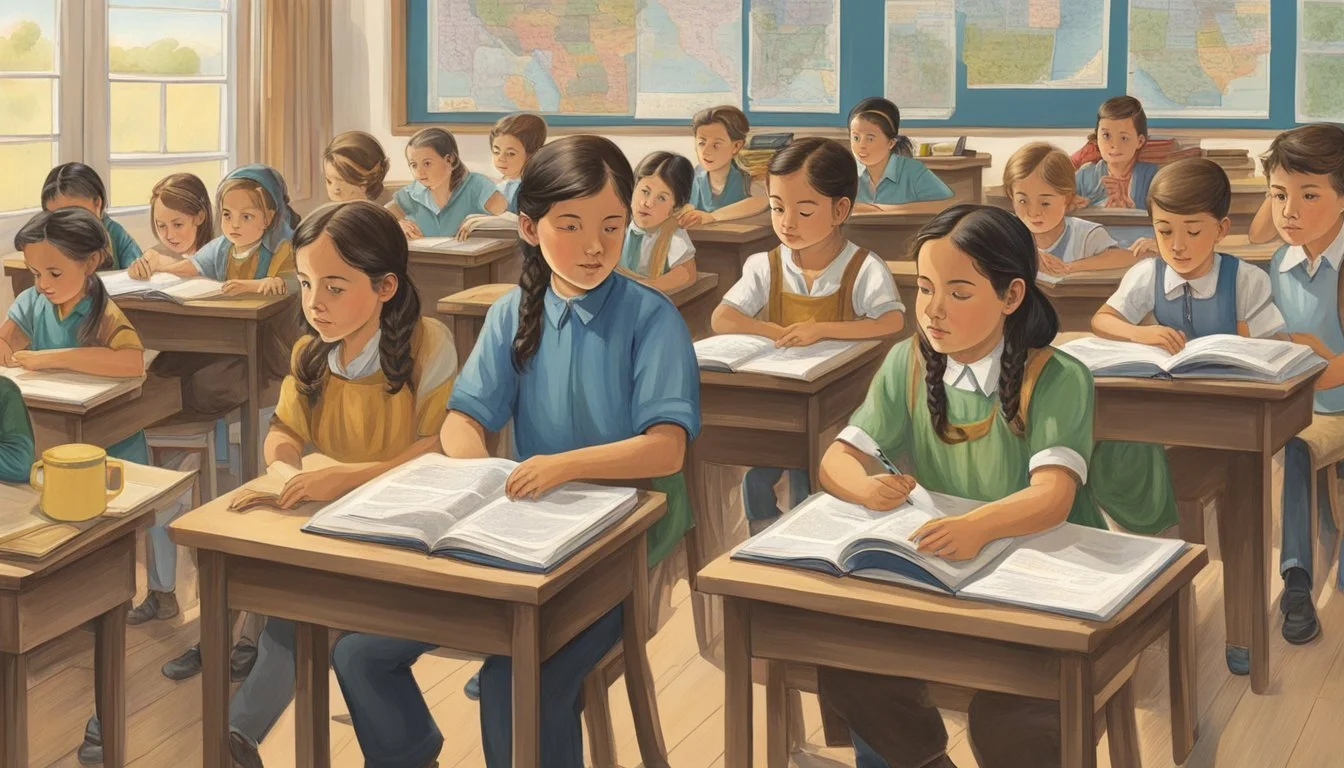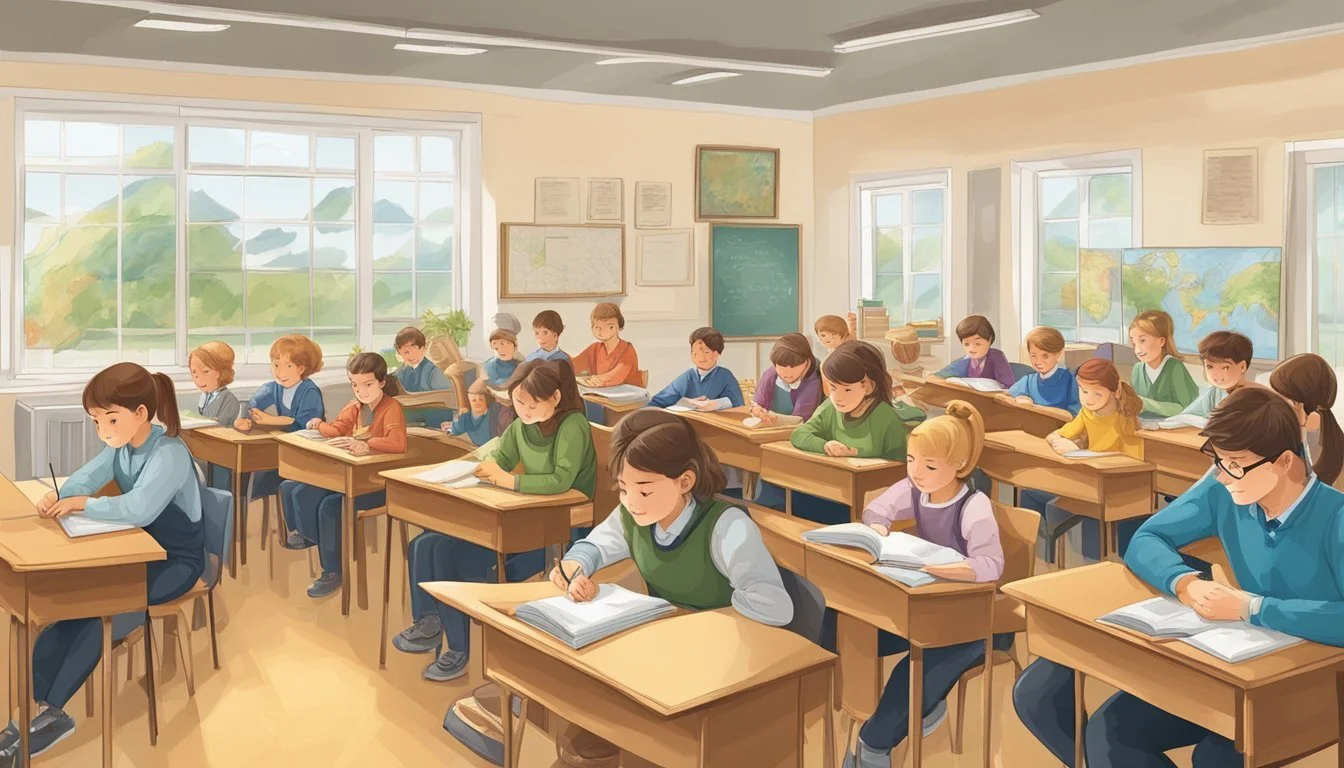The German Influence on Texas Education
Historical and Modern Perspectives
The German influence on Texas education is deeply rooted in the state's history, beginning with the arrival of German settlers in the mid-19th century. These immigrants carried with them a strong tradition of valuing education, which has left a lasting impact on the educational structure and cultural landscape of Texas. In towns such as Fredericksburg and New Braunfels, where German communities flourished, one can observe this lasting legacy. They established schools that infused local education with German language, pedagogy, and values, emphasizing a comprehensive education that included the arts, sciences, and manual trades.
Moreover, the ideals of these early German Texans regarding the accessibility and importance of education were influential in shaping public education in the state. They looked to create a community where learning was a communal responsibility and widely accessible. These perspectives helped to cultivate a robust public school system in Texas. The presence of German-language publications and a version of Texas laws in German from as early as 1846 are testaments to their commitment to make education inclusive and maintain their cultural identity.
In the broader context of Texas education, the contributions made by the German communities extend beyond language and curriculum. They reinforced a culture of valuing education that encouraged participation of all community members. Their advocacy for education laid the groundwork for future educational policy developments in Texas. Notable Texans of German descent have since participated actively in the state's educational and political spheres, showcasing the enduring influence of German heritage on the shaping of educational landscapes in Texas.
Historical Context of German Immigration
The history of German immigration to Texas is marked by the establishment of thriving communities and significant cultural influences that persist to this day. German presence in Texas began in the 1830s and peaked in the latter part of the 19th century, grounded by notable figures and a strong sense of cultural preservation within German Texan enclaves.
Early German Settlements in Texas
German settlers first began to arrive in Texas in the early 1830s, with Johann Friedrich Ernst being a prominent initiator. He acquired land in Stephen F. Austin's colony and subsequently encouraged further migration through letters to his home country. Towns such as New Braunfels and Fredericksburg were founded in the 1840s by these immigrants and became central to the German-Texan community, especially in the Texas Hill Country region.
Influence of Prominent German Figures
Notable German nobles formed the Adelsverein, or the Society for the Protection of German Immigrants in Texas, to promote and manage German settlement. Their efforts facilitated the establishment of German communities in Texas. The larger-than-life tales of land and opportunity from Friedrich Ernst and the Adelsverein's sponsorship of migrants were significant in establishing a German foothold in Texas.
German Communities and Cultural Preservation
Strongly bound by shared norms and language, German settlers established socio-cultural strongholds which have preserved elements of German culture. Festivals, German architecture, and the maintenance of the Texas German dialect are testaments to this preservation. Communities were often self-sustained, with chain migration playing a role as new settlers followed family and friends. This led to a unique fusion within Texas culture, blending German characteristics with local Texan elements.
The Impact of German Culture on Texas
German settlers have left a profound imprint on Texas, with their traditions, language, and industrious work ethic weaving into the fabric of the state. These contributions often manifest in local festivities, bolster the agricultural and industrial sectors, and enrich community interaction through preserved language and communication.
German Traditions and Texas Festivities
Texas is iconic for its widespread celebration of Oktoberfest, which honors the state's rich German heritage through festivals replete with traditional music, dancing, and German cuisine (What Wine Pairs Perfectly With German Cuisine). Towns like Fredericksburg and New Braunfels, which were founded by German settlers, foster cultural hotspots where traditions such as Wurstfest—a week-long festival celebrating sausages and German culture—thrive. These festivities foster German-American relations and unite communities in cooperative effort and cultural appreciation.
German Contributions to Agriculture and Industry
German influence is evident in the development of Texas's agriculture and industries. German settlers introduced sophisticated farming techniques that enhanced local agriculture, creating successful crop clusters that contribute significantly to Texas's economy. They also played a central role in developing the brewing industry, with their expertise leading to a flourishing of quality breweries across the state. These industries reflect the enduring work ethic and entrepreneurial spirit of the German immigrants.
German Language and Communication within Communities
The German influence on language remains alive within Texas communities. Several towns have preserved the use of the German language, which serves as a bonding agent within and among families and as a unique feature of community identity. Educational institutions offer programs in German to perpetuate the language and culture, ensuring that the lines of communication between the past and present remain open, thus maintaining a clear connection to Germanic roots.
Influence of German Education on Texas
The section discusses the integration of German educational practices within Texas, emphasizing the establishment of German-centered academic institutions, the role of the German language in bilingual education, and contributions by German-Texan scholars to the state's academic literature.
Educational Institutions and Curriculum
In the mid-19th century, German settlers in Texas brought with them a strong commitment to education, which led to the founding of numerous schools. These institutions took inspiration from the German education system, differing significantly from the American system of that time, particularly in their emphasis on a comprehensive curriculum. For example, kindergarten, an educational concept created by the German educator Friedrich Froebel, was introduced and gained popularity for its focus on play, creativity, and social skills in early childhood education.
German Language and Bilingual Education
The promotion of the German language has been a significant aspect of the Texan education landscape. Numerous schools and community classes have been dedicated to teaching German, fostering a bilingual environment. This sustained effort has helped in preserving the German language, often resulting in a segment of the population that is effectively bilingual. Importantly, these educational efforts have also helped maintain cultural ties, with dialects of German still spoken among communities in regions such as the Texas Hill Country.
German-Texan Scholars and Literature
German-Texan scholars have made considerable contributions to the state's literary canon, reflecting a unique blend of German and Texan influences. These intellectuals have not only produced a body of literature that includes works written in German or about German-Texan experiences but have also enriched the American scholarly community. Integrating German scholarship's rigor and depth, these scholars advanced academic dialogues across various disciplines, leaving a lasting imprint on the intellectual fabric of Texas.
Sociopolitical Events and Their Effects
In Texas, the sociopolitical climate during the World Wars severely impacted the German-Texan community, particularly influencing the educational sphere and the cultural assimilation of German settlers.
World Wars Impact on German-Texans
During World War I, anti-German sentiment swept through Texas, affecting German-Texans profoundly. Legislation was introduced to suppress the German language and culture, culminating in Texas House Bill 304 in 1919, which prohibited the teaching of German in public schools. San Antonio, a hub for German settlers, saw a significant decline in German cultural expression during this period.
In the midst of World War II, prejudice against Germans resurfaced, further diminishing their public and cultural presence. Even though many German-Texans supported the war effort, the public practice of German customs, such as the traditional Easter Fire, was subdued, and instruction in German was often avoided to escape suspicion and conflict.
Post-war Changes and Assimilation
Post-World War II, German-Texans sought to rebuild their communities amidst changed political and social environments. The necessity for transportation improvements after the war facilitated newcomers, including political refugees, to settle and assimilate into Texan society. Assimilation, coupled with the desire to avoid further prejudice, led to the anglicization of German names and a gradual decline in the use of the German language among descendants of German settlers.
Through these sociopolitical events, the education and culture of German-Texans were notably reshaped, paving the way for a more integrated but less distinguished German heritage within the Texan educational system and cultural landscape.
Contemporary Legacy and Future of German Influence in Texas
The German influence on Texas extends deeply into the educational sphere, where its legacy is both preserved and evolving. German language programs in schools and universities continue to foster understanding, enabling students to explore the culture, history, and language that shaped much of the Texan cultural landscape.
In communities of German descent, such as Fredericksburg and New Braunfels, cultural preservation is tangible. These towns host vibrant festivals like Oktoberfest, which serve as both educational and celebratory events, highlighting the fusion of German and Texan heritages.
German Influence Representation in Texas Language German language classes Cultural Festivals Annual Oktoberfest History Museum exhibits Architecture Historic German buildings
The future of this influence appears focused on continuing community-based efforts to maintain traditions. The German Texas heritage is notably present in historical societies and preservation groups that aim to keep the German Texan identity alive for future generations. As these preserved elements become part of the cultural curriculum in Texas, they enrich the educational experience, offering diverse perspectives to learners of all ages.
While the number of German-speaking Texans may be diminishing, the cultural influence remains robust, integrated into the wider Texan narrative. Local efforts and institutional support suggest that the German influence, with its distinct contributions to the state's educational and cultural fabric, will persist, honoring the legacy of those German settlers who became an integral part of Texas's diverse identity.






